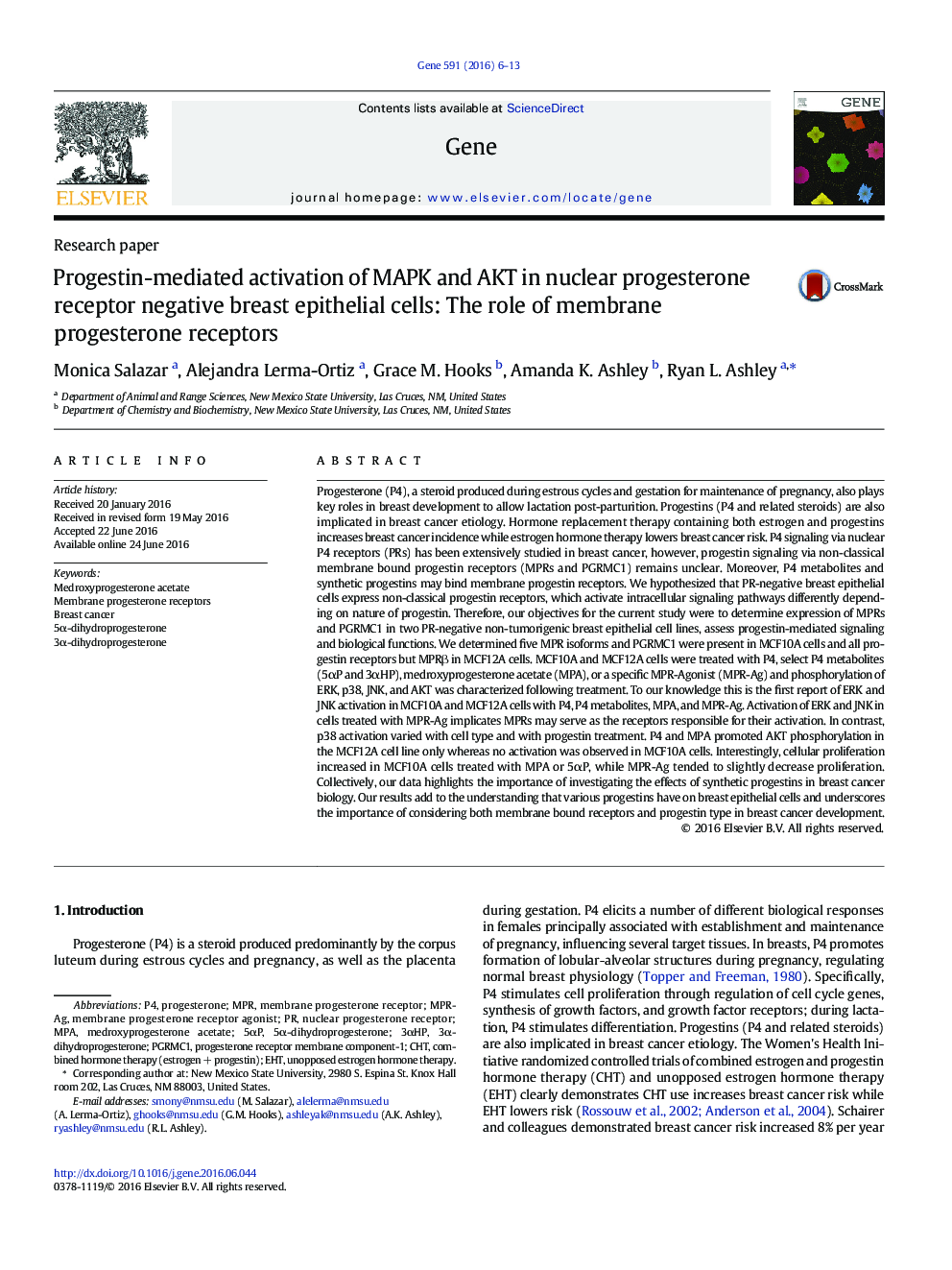| کد مقاله | کد نشریه | سال انتشار | مقاله انگلیسی | نسخه تمام متن |
|---|---|---|---|---|
| 2814808 | 1159831 | 2016 | 8 صفحه PDF | دانلود رایگان |

• Five MPRs and PGRMC1 are synthesized in PR null breast epithelial cells.
• Natural and synthetic progestins activate MAPK and AKT pathways in PR null cells.
• The MPR agonist activated MAPK pathways in MCF10A and MCF12A cells.
• Cellular proliferation increased in MCF10A cells treated with MPA or 5αP.
• Membrane bound receptors and progestin types are central to breast cell functions.
Progesterone (P4), a steroid produced during estrous cycles and gestation for maintenance of pregnancy, also plays key roles in breast development to allow lactation post-parturition. Progestins (P4 and related steroids) are also implicated in breast cancer etiology. Hormone replacement therapy containing both estrogen and progestins increases breast cancer incidence while estrogen hormone therapy lowers breast cancer risk. P4 signaling via nuclear P4 receptors (PRs) has been extensively studied in breast cancer, however, progestin signaling via non-classical membrane bound progestin receptors (MPRs and PGRMC1) remains unclear. Moreover, P4 metabolites and synthetic progestins may bind membrane progestin receptors. We hypothesized that PR-negative breast epithelial cells express non-classical progestin receptors, which activate intracellular signaling pathways differently depending on nature of progestin. Therefore, our objectives for the current study were to determine expression of MPRs and PGRMC1 in two PR-negative non-tumorigenic breast epithelial cell lines, assess progestin-mediated signaling and biological functions. We determined five MPR isoforms and PGRMC1 were present in MCF10A cells and all progestin receptors but MPRβ in MCF12A cells. MCF10A and MCF12A cells were treated with P4, select P4 metabolites (5αP and 3αHP), medroxyprogesterone acetate (MPA), or a specific MPR-Agonist (MPR-Ag) and phosphorylation of ERK, p38, JNK, and AKT was characterized following treatment. To our knowledge this is the first report of ERK and JNK activation in MCF10A and MCF12A cells with P4, P4 metabolites, MPA, and MPR-Ag. Activation of ERK and JNK in cells treated with MPR-Ag implicates MPRs may serve as the receptors responsible for their activation. In contrast, p38 activation varied with cell type and with progestin treatment. P4 and MPA promoted AKT phosphorylation in the MCF12A cell line only whereas no activation was observed in MCF10A cells. Interestingly, cellular proliferation increased in MCF10A cells treated with MPA or 5αP, while MPR-Ag tended to slightly decrease proliferation. Collectively, our data highlights the importance of investigating the effects of synthetic progestins in breast cancer biology. Our results add to the understanding that various progestins have on breast epithelial cells and underscores the importance of considering both membrane bound receptors and progestin type in breast cancer development.
Journal: Gene - Volume 591, Issue 1, 10 October 2016, Pages 6–13